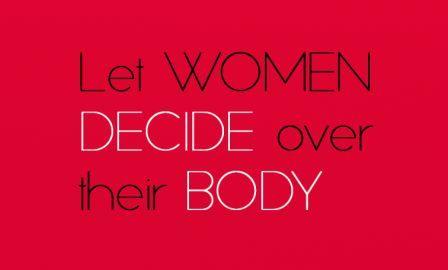
Abortion. The proverbial hot potato. The elephant in the room. The ancient-old practice. The issue some choose to hate. The word others tremble to mention. The secret killer of women and girls.
It does not matter how we describe abortions but the reality is that they are taking place on daily basis. As someone who works in the rural area in Dowa in central Malawi, where many girls and women suffer from the consequences of unsafe abortions, I believe it is important to openly and honestly discuss the issue so that we can be proactive in addressing this public health menace.
I am inspired that the silence on abortion is broken. A fortnight ago, I read with keen interest the passionate call made by Inkosi Ya Makosi Gomani on the need to review abortion law. His call came after the Maseko Ngoni king learnt about the deaths of two girls in Ntcheu due to unsafe abortions.
As a matter of fact, he is not the only traditional leader to make that call. Senior Chief Chikumbu of Mulanje, Senior Chief Lukwa of Kasungu and Inkosi Mabulabo of Mzimba have already made similar calls in the past at various forums. The chorus of these traditional leaders is the same – liberalise abortion law in order to save women’s lives.
Statistics on abortion in Malawi are startling. While in 2009 up to 70,000 women in this country terminated their unintended pregnancies, the figures shot up to 141,000 in 2015. The bad news is that the majority of induced abortion procedures in Malawi are performed under clandestine and unsafe conditions with complications accounting for between 6 and 18 percent of maternal deaths.
These figures speak for themselves. Abortion is not going away. No amount of denial or condemnation on moral or religious grounds will ever end this public health problem.
The fact that just in 2015, over 141,000 Malawian women terminated unintended pregnancies means that the abortion law the colonials wrote has become toothless. It is failing to stop women from inducing abortions. In essence, what the restrictive law has succeeded in doing is to deter women from accessing safe abortions in hospitals by forcing them to seek unsafe abortions from quacks. As a consequence, many women end up with injuries as they seek the services from herbalists or untrained health personnel.
Why should the law change?
The law needs to change so that women and girls who are desperate to terminate their unintended pregnancies can do so in hospitals where the risk of complications is non-existent.
While Malawi is dilly-dallying in loosening abortion restrictions, this flies in the face of considerable evidence that legalising abortion saves lives and reduces high maternal mortality rates. A good example is South Africa, where – just six years after the country liberalized its abortion laws – the number of women dying from unsafe abortion dropped by almost 50 percent, and the number of women suffering serious complications fell dramatically.
A recent study by the World Health Organization found that overall abortion rates in the world are similar, regardless of whether abortion is illegal in a country or not. In other words, restrictive abortion laws are not associated with a low abortion rate. In fact, in countries where abortion is widely available there has typically been a decline in abortion rates over time, especially when contraception use rises.
There is one lesson for everyone to learn. Restrictive abortion laws are not very effective at achieving their purported goal of stopping women from obtaining abortions. The key difference is safety. So, if any country wants to reduce abortions, punitive laws are not the way to go because what is important is to focus on reducing the number of unintended pregnancies. Fewer unplanned pregnancies mean fewer unsafe abortions and hence fewer maternal deaths.
As Malawi joins the world in celebrating the International Global Day of Action for Access to Safe and Legal Abortion tomorrow on September 28, let us seriously reflect as to why our beloved nation is still retaining colonial abortion laws that kill and injure women, violate their human rights and dignity.
This article, coordinated by Centre for Solutions Journalism, is written by Darlington Harawa, the executive director of Dowa-based organization, Passion for Women and Girls.
